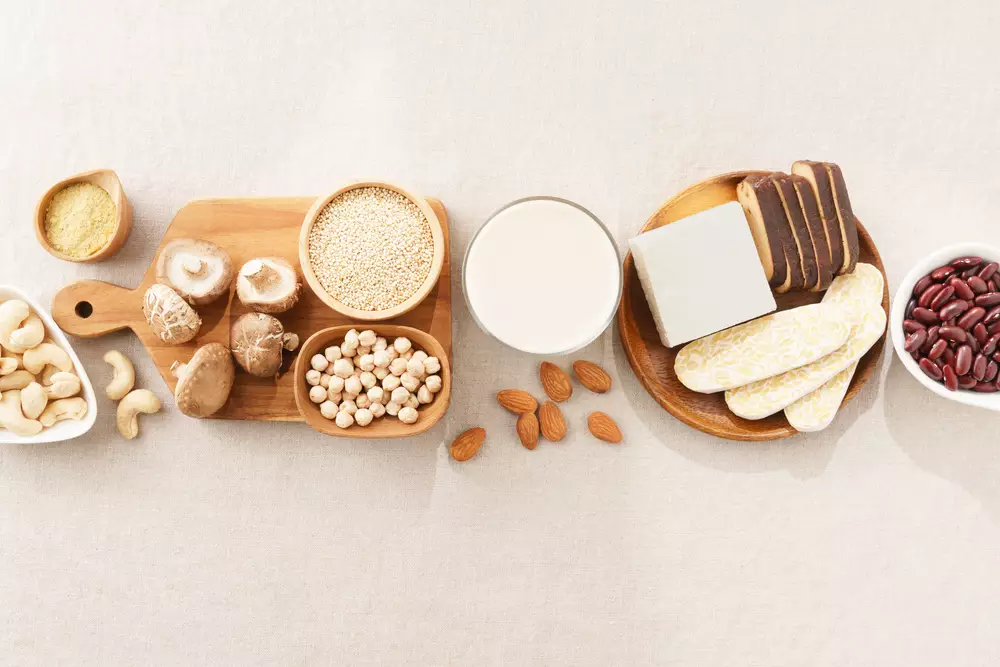Are Nuts Safe for Kidney Disease?
Kidney disease is a growing health concern affecting millions worldwide. Making smart food choices is key to supporting not only kidney health, but overall health, as well. Nuts can be a beneficial addition to the diet for those with chronic kidney disease (CKD), but they can also be high in minerals that should only be eaten in moderation, depending on what stage of kidney disease you’re in. Here are some health benefits of nuts, along with guidelines for eating and enjoying them safely.
Benefits of nuts for kidney health
- Antioxidants. Many nuts are high in antioxidants like vitamin E that help fight inflammation and oxidative damage. Oxidative stress contributes to CKD progression.
- Anti-inflammatory compounds. Nuts contain plant sterols and other anti-inflammatory nutrients. This helps reduce inflammation which is hard on kidneys.
- Improved kidney function. Eating various nuts has been linked to improved kidney function in some studies. Walnuts and almonds show particular benefits.
- Blood pressure and diabetes management. Nuts help lower blood pressure and improve diabetic control, both of which take pressure off the kidneys.

Good nuts for kidneys
Some top nuts for supporting kidney health include:
- Walnuts. Walnuts are high in antioxidants and ALA omega-3s which have anti-inflammatory properties. They are a source of healthy fats, reduce blood pressure, boost brain health, improve heart and gut health, help regulate weight, and can even have protective effects against certain cancers.
- Almonds. Almonds provide protein, magnesium, and vitamin E. Help lower blood pressure and cholesterol.
- Pistachios. Pistachios are full of plant sterols that fight inflammation. They also help manage weight and blood sugar.
- Cashews. Cashews contain zinc and magnesium, which help regulate sugar and blood pressure.
Unfortunately, some of the same nuts that are good for kidney health can also be dangerous if consumed in large portions, due to their high phosphorus content. Phosphorus is an essential mineral, but too much of it can be problematic, particularly for individuals with late-stage kidney disease. When your kidneys are not functioning correctly, excess phosphorus can accumulate in your blood, leading to various complications, including:
- Joint pain,
- Kidney failure,
- Tooth and gum issues,
- Osteoporosis (weak, brittle bones), and
- Heart disease (the primary cause of death in people with CKD).
Nuts high in phosphorus
To help you avoid these and other complications, here are some nuts to limit or eat in moderation when your prescribed diet calls for phosphorus restriction:
- Brazil nuts. These creamy and delicious nuts are very high in phosphorus, making them a nut to avoid or consume in extremely limited quantities. While they offer several health benefits, their high phosphorus content can put extra strain on your kidneys.
- Almonds. While their blood pressure- and cholesterol-lowering properties make them kidney-friendly, almonds are relatively high in phosphorus compared to other nuts. If you enjoy almonds, it’s best to consume them in smaller portions to help manage your phosphorus intake.
- Cashews. Cashews have moderate phosphorus levels, so they can be included in your diet. However, it’s still a good idea to keep an eye on your portion sizes to ensure that you don’t exceed your recommended phosphorus limits.
Walnuts and pecans are lower in phosphorus than many other popular nuts, making them a better choice for people with kidney disease.
To maintain optimal kidney health, it’s essential to stay within your recommended phosphorus limits, which can be determined with the guidance of your healthcare provider or renal dietitian.
Stay ahead of your CKD
Responsum for CKD empowers people with kidney disease through community, knowledge, and shared experiences
Other types of nuts to limit when you have CKD
Salted Nuts
Nuts with added salt can be detrimental to kidney health because they provide excess sodium. Your kidneys are responsible for regulating sodium levels in your body, and when they are not functioning correctly, as is the case with kidney disease, they may struggle to flush extra sodium from the body. Sodium buildup can cause edema (swelling), which places a strain on other major organs, like the heart.
Types of nuts that are commonly salted are:
- Peanuts,
- Pistachios,
- Cashews, and
- Nut mixes.
Check product labels when selecting nuts to ensure they are unsalted. If you desire some seasoning, you can add your own herbs and spices to enhance the flavor.
Oily Nuts
While healthy fats are generally beneficial for your overall well-being, some nuts are exceptionally high in fat and should be consumed in moderation, especially if you have kidney disease, to avoid weight gain and hypertension.
Examples of high-fat nuts include:
- Macadamia nuts. Macadamia nuts are relatively low in phosphorus and potassium, but they are also high in fat.
- Pine nuts. Pine nuts are a versatile ingredient in various dishes, but their fat content is relatively high. Consider using them as a garnish rather than a primary ingredient.
- Brazil nuts. In addition to being high in phosphorus, Brazil nuts are among the high-fat nuts to be cautious about.
- Peanuts. Legumes, as opposed to true nuts, peanuts are high in both fat and phosphorus. Experts advise limiting your peanut intake to less than 1 ounce per day.
Tips for eating nuts when you have kidney disease
- Portion control. Stick to a portion size of 1 ounce (¼ cup or a small handful) of nuts per day, to manage your mineral intake.
- Soaking. Soaking certain nuts like almonds overnight can help reduce their phosphorus content.
- Rotate nut types. Incorporate a variety of nuts into your diet to ensure you receive a range of nutrients and flavors.
- Grind into flour. Consider grinding nuts into flour and using them in cooking or baking to add flavor and nutrition to your dishes.
- Monitor your labs. Stay up-to-date on the lab results for your blood tests, and adjust your phosphorus and potassium intake as needed.
While nuts can be a healthy and satisfying snack, it’s important to be selective when you have kidney disease. Choosing kidney-friendly nuts and practicing portion control can help you enjoy the benefits of these nutritious snacks without putting undue strain on your kidneys.
Remember that your healthcare provider and renal dietitian can offer valuable guidance on creating a diet that supports your kidney health while allowing you to savor the flavors and benefits of nuts in moderation.


